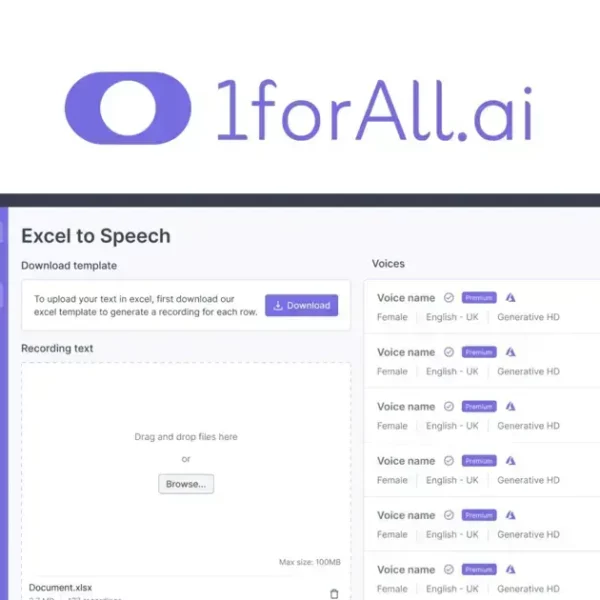The best free CRM systems enhance business efficiency by streamlining customer management, lead tracking, and reporting, all without the financial burden of subscriptions. Key factors to consider include ease of use, scalability, and available support to ensure a perfect fit for your business needs.
Discover the best free CRM systems tailored to enhance your business efficiency and customer engagement. These solutions not only streamline processes but also empower teams to strengthen their relationships with clients. In this article, we’ll explore key features, comparisons of top options, and tips for selecting the right CRM for your unique needs.
Top Features to Look for in Free CRM Systems
When searching for the best free CRM systems, there are several key features to consider ensuring you choose an effective tool. First, look for user-friendly interfaces that make navigation easy for all team members. A good CRM should provide a seamless experience, enabling quick access to customer information and features.
Customization Options
Another essential aspect is customization. The best free CRM systems allow you to tailor forms, dashboards, and reports to fit your business needs. This helps in managing customer relationships more effectively, presenting data in a way that is relevant to your operations.
Lead and Contact Management
Effective lead and contact management is crucial. Your CRM should facilitate tracking leads through the sales funnel, managing interactions, and maintaining detailed profiles for each customer. Such features help in nurturing relationships and ultimately closing more deals.
Collaboration Tools
Collaboration tools within a CRM can enhance team productivity. Features like shared calendars, notes, and task assignments foster teamwork and ensure everyone is on the same page regarding customer engagements.
Reporting and Analytics
Robust reporting and analytics capabilities are vital for strategic decision-making. The best free CRM systems provide insights into sales performance, customer behavior, and marketing effectiveness, enabling businesses to adapt and grow.
Integration with Other Tools
Lastly, consider the integration capabilities of a CRM system. It should easily connect with your existing tools, like email marketing platforms, social media, and project management software. This enhances workflow and ensures a cohesive tech stack.
Comparing the Best Free CRM Systems

When it comes to comparing the best free CRM systems, it’s essential to evaluate several aspects to find the right fit for your business. Start by looking at the basic features offered by each system. Many tools provide similar functionalities, but some have unique features that set them apart.
User Interface
The user interface (UI) can greatly impact how effectively your team uses a CRM. A clean, intuitive design makes it easier for everyone to learn and use the system efficiently. Take some time to explore various UI styles and choose one that matches your team’s preferences.
Functionality
Evaluate the core functionality of different CRM systems. Focus on how well each system handles contact management, sales tracking, and customer interactions. Some CRMs come with advanced features like automation tools and marketing integration that can enhance your processes.
Scalability
Consider the scalability of each system. As your business grows, will the free CRM still meet your needs? It is important to select a platform that can accommodate increased data and user demands without taxing your resources.
Customer Support
Although the systems are free, assess the level of customer support available. Most platforms offer online resources such as forums, tutorials, and help centers. A responsive support team can be invaluable when you face challenges or need guidance.
Integration Options
Examine how well each CRM integrates with other tools you may be using, such as email marketing software, social media platforms, or accounting software. Seamless integration can save time and ensure your processes flow smoothly.
How to Choose the Right Free CRM for Your Business
Selecting the right free CRM for your business involves a few key steps that can help ensure you make an informed decision. Start by evaluating your business needs. Consider the size of your company, the type of customer interactions you manage, and the features that will enhance your operations.
Identify Your Requirements
Begin by listing the core features you need in a CRM system. Do you require lead tracking, sales automation, or extensive reporting capabilities? Understanding your specific requirements will guide your search, making it easier to compare different options.
Trial and Testing
Many CRM providers offer free trials. Take advantage of these opportunities to test the systems firsthand. During this phase, assess how intuitive the user interface is and how well the system supports your workflow. This hands-on experience is invaluable for evaluating functionality.
Seek User Feedback
Look for reviews and feedback from other users. Online forums and social media can provide insights into real-world experiences. Pay attention to comments regarding ease of use, customer support, and issues others may have encountered.
Evaluate Support and Resources
Support is crucial, especially for free software. Check the resources available, such as help guides, tutorials, and community forums. A strong support framework can make a significant difference in how effectively you use the CRM.
Assess Long-Term Usability
Finally, consider the long-term usability of the CRM. Some free systems may have limitations that could hinder your growth in the future. Look for options that offer upgrade paths to paid versions with enhanced features, ensuring your CRM can scale with your business.
User Experiences with Free CRM Systems

User experiences with free CRM systems can vary widely, highlighting both advantages and challenges. Many users appreciate the cost savings of using a free CRM, as it allows smaller businesses to access powerful tools without the financial burden of subscriptions.
Positive Feedback
One common positive aspect mentioned by users is the functionality these CRM systems offer. Features such as contact management, task tracking, and reporting are often praised for their helpfulness in streamlining daily operations. Users appreciate how these features facilitate organizing customer information and improving team collaboration.
User-Friendly Interfaces
Another frequently noted benefit is user-friendly interfaces. Many free CRM platforms prioritize ease of use, enabling users to adapt quickly without extensive training. This results in faster onboarding and less frustration for teams looking to manage customer relationships effectively.
Challenges Encountered
However, users do report challenges as well. Limited features in the free versions can become a pain point. Some users find that they outgrow the capabilities of their chosen CRM and wish for more advanced tools without needing to pay for an upgrade.
Support Limitations
Support is another area where free CRM users often express concerns. Since many free CRM systems provide limited customer service options, users may struggle to find solutions to their issues. This can lead to delays in resolving technical problems or getting help with features.
Community Forums and Resources
On a positive note, many free CRMs have vibrant user communities. These forums can be a valuable resource where users share tips and solutions. They often provide assistance when official support channels are insufficient, creating a collaborative environment for users to learn from one another.
Common Mistakes When Choosing a Free CRM
Choosing a free CRM can be a strategic decision, but many users make common mistakes that can lead to dissatisfaction. Being aware of these pitfalls can help ensure you select the right system for your business needs.
Not Defining Business Needs
One of the most significant errors is failing to define your business needs clearly. Every business has unique requirements, so it is essential to outline what features are most important to you, such as contact management, automation, or integration capabilities. Without this clarity, you may end up with a CRM that does not serve your objectives.
Ignoring Scalability
Another common mistake is not considering scalability. As your business grows, you may need more advanced features. Some free CRMs limit options or charge hefty fees for upgrades, making it necessary to think ahead. Choose a CRM that can grow with you and adapt to changing requirements.
Overlooking User Experience
User experience is critical when selecting a CRM. Some users often overlook how intuitive and user-friendly the interface is. A complex CRM can hinder team productivity and lead to frustration. Taking time to explore the system’s usability during a trial period will prove beneficial.
Neglecting Customer Support
Free CRMs often come with limited customer support, which can be a major drawback. Users sometimes underestimate the importance of having access to help when needed. Before making a choice, investigate what kind of support resources are offered, such as tutorials, community forums, or direct assistance.
Failing to Test Various Options
Finally, many users do not take the time to test different free CRM options. Relying solely on reviews or recommendations can be misleading, as what works for one business may not suit another. Exploring several systems will allow you to find the best fit for your specific needs.
Choosing the Right Free CRM for Your Business
Finding the best free CRM is essential for your business’s success. Remember to clearly define your needs and evaluate all options carefully. Take the time to test different systems, and consider how they can grow with your business.
It’s crucial to pay attention to user experience and ensure that the CRM is easy for your team to use. Customer support should also be a key factor in your decision-making process.
By avoiding common mistakes and making informed choices, you can find a CRM that enhances your operations and strengthens customer relationships, allowing you to compete effectively in your market.
FAQ – Frequently Asked Questions about Free CRM Systems
What should I look for when choosing a free CRM?
When choosing a free CRM, identify your business needs, assess user experience, consider scalability, and check available customer support.
Can free CRM systems grow with my business?
Some free CRM systems offer scalable options that allow you to upgrade to paid versions with more features as your business grows.
How important is user experience in a CRM?
User experience is crucial because a user-friendly interface helps your team use the system effectively, enhancing productivity.
What are common pitfalls when selecting a free CRM?
Common mistakes include not defining business needs, overlooking scalability, neglecting customer support, and failing to test multiple options.
Is customer support available for free CRM systems?
Many free CRM systems have limited customer support, so it’s important to check what resources are available, like forums or tutorials.
How can I gather feedback about a free CRM’s effectiveness?
You can gather feedback by testing the CRM during a trial period and asking your team about their experiences with usability and features.




